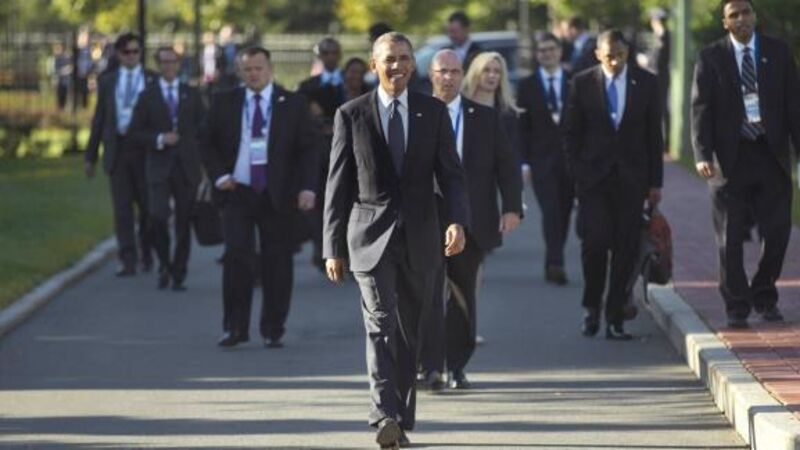Obama 'wants political solution'

President Barack Obama and French president Francois Hollande have said they are committed to a political solution in Syria even as they prepare for potential military strikes.
The two leaders spoke after meeting in St Petersburg on the sidelines of the G20 summit.














